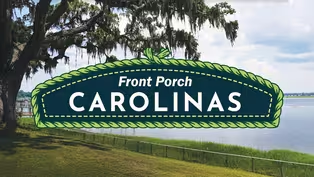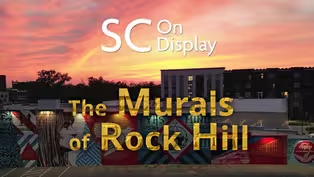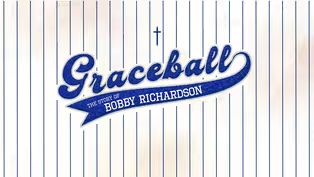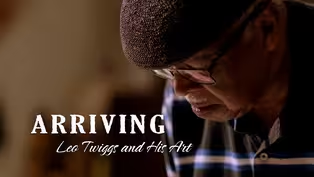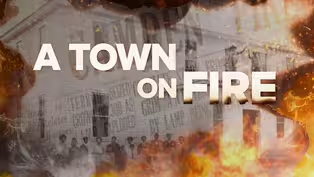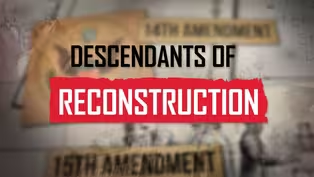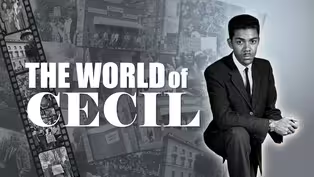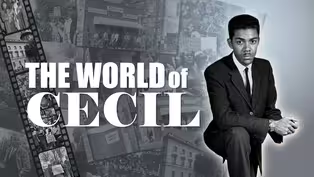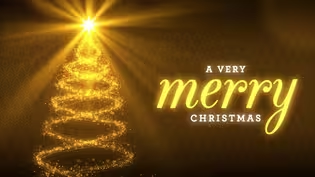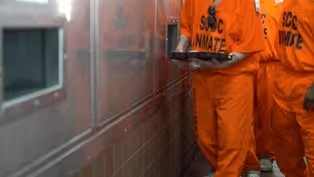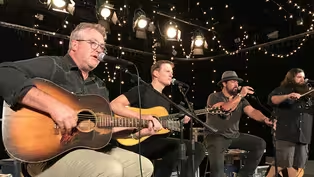
A Conversation With Will Willimon
Special | 27m 46sVideo has Closed Captions
William Willimon is an American theologian and bishop in the United Methodist Church.
William Henry Willimon (born May 15, 1946) is an American theologian and bishop in the United Methodist Church. He is currently Professor of the Practice of Christian Ministry and Director of the Doctor of Ministry program at Duke Divinity School.
Problems playing video? | Closed Captioning Feedback
Problems playing video? | Closed Captioning Feedback
SCETV Specials is a local public television program presented by SCETV
Support for this program is provided by The ETV Endowment of South Carolina.

A Conversation With Will Willimon
Special | 27m 46sVideo has Closed Captions
William Henry Willimon (born May 15, 1946) is an American theologian and bishop in the United Methodist Church. He is currently Professor of the Practice of Christian Ministry and Director of the Doctor of Ministry program at Duke Divinity School.
Problems playing video? | Closed Captioning Feedback
How to Watch SCETV Specials
SCETV Specials is available to stream on pbs.org and the free PBS App, available on iPhone, Apple TV, Android TV, Android smartphones, Amazon Fire TV, Amazon Fire Tablet, Roku, Samsung Smart TV, and Vizio.
More from This Collection
Find content produced by SCETV.
Weathering The Flood: South Carolina 10 Years Later
Video has Closed Captions
Revisit the "thousand-year" flood of October 2015. (26m 46s)
Video has Closed Captions
Front Porch Carolinas takes viewers to important Civil Rights locations in the state. (27m 2s)
SC On Display: The Murals of Rock Hill
Video has Closed Captions
"'The Murals of Rock Hill'' spotlights this vibrant art community. (26m 46s)
Graceball: The Story of Bobby Richardson
Video has Closed Captions
At nineteen years-old, Bobby Richardson, became the starting second baseman for the Yankees. (54m 51s)
Arriving: Leo Twiggs and His Art
Video has Closed Captions
Dr. Leo Twiggs is an artist and educator in South Carolina. (56m 46s)
Video has Closed Captions
The Cleveland School fire of 1923 influenced building and fire codes nationwide. (56m 46s)
Video has Closed Captions
Explore the relationship between Reconstruction and African American Life. (56m 46s)
Video has Closed Captions
Part two continues the examination of the life of Cecil Williams. (56m 46s)
Video has Closed Captions
Explore the life of acclaimed civil rights photographer, Cecil J. Williams. (57m)
Carolina Country with Patrick Davis & Friends
Video has Closed Captions
Carolina Country with Patrick Davis & Friends. (58m 39s)
Providing Support for PBS.org
Learn Moreabout PBS online sponsorship♪ [calm instrumental music] ♪ ♪ ♪ I have the good fortune, I think of a growing up in Greenville and at that time it was a medium-sized southern city.
We grew up 10 miles south of Greenville off the Augusta Road in a farm that my family had inhabited for five generations by the time I got there.
My father was incarcerated for bank fraud and my mother was a schoolteacher and basiclly and my father left us when I was about 2 or 3 years old.
So, he really played no part in my life.
I know I was in college, before I ever heard the phrase single parent family and I thought, That was me.
But because I had so many uncles and aunts that took such a gracious oversight in my development and growing up years I don't think I ever really felt deprived.
I've got a sister and a brother.
And my sister was in high school when I was born and my brother was in junior high when I was born.
My brother and sister played a big part in my development and some of my fondest memories as a child and I think looking back, formative memories were going with my sister to visit my sister at William and Mary.
She was the first person in our family to to go out of state to college.
And I think that probably put in my mind that higher education is the goal of life, the way to venture forth, to escape, to move into a new world.
So, I think that was formative on me.
My family helped found the eight sided octagon McBee Chapel Methodist Church founded in the 1830s.
If you go to McBee Chapel Methodist Church today in Connestee, South Carolina south of Greenville, you will still see on the back pew, a Roy Rogers carved into the back pew by my brother, Bud, when my mother was dozing during the sermon.
But by the time I came along, we had moved to Buncombe Street United Methodist Church.
Buncombe Street Church in downtown Greenville played a big part in my own development.
I remember riding home from church one Sunday and I asked my mother, "Are we Methodist?"
and she said, "We are."
and I said, "What if I don't want to be a Methodist?"
And she said, "Well, that will not be possible."
"You've been baptized."
And I said, "What's that?"
And she said, "Well, on a June "Sunday afternoon, the preacher came for dinner "and as I recalled he ate nearly an entire fried chicken.
"And he then after dinner, he baptized you "in your grandmother's living room, using the "silver Revere bowl that your grandmother had."
And, I said, "Well, what difference does that make?"
And she said, "Well, you'll have to find out, won't you?"
So, I was baptized.
And in baptism, the church is doing something I think that's very against American culture in that the church says in baptism, in effect.
Who you are, your identity is a gift.
We have a word for gift, grace.
That is it's imposed upon you.
It's given to you.
You take a little squalling baby in our church and you say, "Your name is Christian.
"You're a Christian."
Which seems absurd to lay that much on a little baby but the promise is God working in you, you grow to the name.
You come to answer to the name Christian.
You are that, which the church promised you would be and therefore baptism is a great comfort.
I was college chaplain at Duke for 20 years and got a front-row seat on college students' earnest journey to try to discover Who am I?
What should I do with my life?
What do I really believe, etcetera.
Well, it made me glad that as Christians in a sense our identity is bestowed upon us.
It is given to us.
We don't have to thrash around creating that and that's baptism.
My mother decided when I was in the fourth grade that I should be moved to the city schools and that eventually involved Hughes Junior High School.
At Hughes Junior High, I blossomed into a public speaker I found out I enjoy being up in front of people talking.
And I remember giving a speech one night at the PTA and I think I was a campus politician I think I was supposed to talk in under 5 minutes about what the students were going to be doing that year and anyway an editor at the Greenville News came up to me afterwards and said "you got that Willimon, gift of gab."
He said, "I remember your - who's your daddy?"
And I said, "Robert."
And he said, "Yeah, he talked me out of $10,000."
And I froze.
And he said, "But I tell you what, if he walked "right in that door this moment, "and said, Hey, Bill I got a scheme that'll make you rich, "I'd probably whip out my checkbook and pay him."
He said, "You Willimons can talk people into anything."
Well, I did not know at that moment, because I was only 14, but that maybe led me to be interested in public speaking and eventually I became - I was president of the student body Hughes Junior High, which I was thrilled about until the principal called me in and he said, "All right, "now you have to set an example for all of our students."
And I said, "Really?"
And he said, "That's the job."
And I thought, Wow that's an awesome responsibility.
Therefore, 20 years later when a bishop laid his hands on my head and said to me, "I'm ordaining you "to be a priest after the order of Melchizedek "and you are to be an example to the flock of Christ."
And I thought back, I've had some experience of this back in the ninth grade.
And I think at Greenville High, I had teachers who were good enough to instill in me, a love of learning or to maybe build on my nascent desire to learn.
I realized, maybe because of my mother, my sister because of Greenville High School, my family, it was like I was bred to have no other goal in life than to go to college.
And I really didn't think about life after college, because college was that great goal.
It's only 30 miles from Greenville where I lived in Greenville to Wofford College, but to me it was a huge journey to Spartanburg and Wofford it was like from day one I sort of thought this was where I was created to be.
I also had a distinction my sophomore year, I was art editor of the Journal, the literary magazine.
So we published this issue where I did a satirical cartoon lampooning the college president, the director of food services, etc.
Well, anyway the minute the magazine was published the issues were confiscated the judicial council met and I was in danger of being kicked out of Wofford and it was a harrowing experience One thing I learned from that was, I said I'm never again going to publish anything that I'm not willing to stand up for.
The weekend I graduated from Wofford, the dean of students Frank Logan became a dear friend of mine.
Said to me, "When you - this weekend I want to meet your mother."
I said, "You want to meet my mother?
Why my mother?"
He said, "She seems a remarkable woman."
I said, "Why would you say that?"
And he said, "When we were getting ready to kick you "out of the college, "which we should have done, for good reason "for that literary magazine incident, "I thought, well, the courteous thing would be to call "your mother and to warn her that you can be expelled.
"So, I called her and I said your son, "this afternoon could well be expelled from college "because he has participated in a "publication, literary magazine, the drawings he did "were salacious, immature boorish and ignorant.
"He has violated the college conduct code, there by."
He said, "Your mother said to me, "Well, I always knew he was immature and boorish.
"The salaciousness is a surprise," but she said "that's why I thought it would be good for him to "have a good liberal arts education at a place like "Wofford."
And Dean Logan said, "I held "the phone and I said, thank you.
I put down the "phone, I went across the hall to the judicial council "and I said we're getting ready to kick out "a student for being immature and ignorant.
"Hell, that's the purpose of the college.
"We're supposed to be educating them."
And he said, "So, we "voted to put you on conduct probation for a year."
♪ [upbeat instrumental music] ♪ I also remember by the time I went to Wofford I had about decided as a very bright high school know-it-all senior, that Christianity was really for thoughtless dumb people.
I said to a friend "I would be a Christian, but you have "to have a lobotomy to swallow all that stuff "from what I've seen."
But in college, religion classes at Wofford, I met people who were brilliant believers of the Christian faith.
And over the years I've heard about people who've talked about I lost my religion in college religion class.
And I was saying, "Really well, I found mine there."
So, that's one of the things Wofford did for me.
One of the questions that has obsessed me along the way is I wonder why God called me to do this kind of work.
And I've learned that's really kind of a dumb question to ask because my being a preacher like any Christian's vocation was God's idea before it was mine and once you ask God a question like, "Well, how come you called somebody like me to do something like this?
One appropriate response from the Lord is, well read the Bible.
Read about the call of Jacob or Abraham or Isaac or I'm a sucker for losers like you.
I love to, it's kind of part of my glory to show what I can do with someone with as little talent and natural inclination for this job, as you.
I do it all the time that's kind of what I do.
So, that's vocation and vocation is meant that you've been enlisted by God for reasons known only to God.
And you have been assigned a big part to play in God's Great Reclamation of the world of God's world for God.
They said a lot of nasty things about Jesus.
One thing they never said about him was he was dull or he was well balanced.
Jesus, I found to be disruptive, a troublemaker and I got good evidence for that.
Look at the New Testament, Jesus probably preached to way more people than he won.
I remember how his ministry ended, not with a certificate and a building named for him, but - on a cross.
And I think partly, one of the challenges of being a Christian is to allow your life to be out of your control, to expect Jesus to show up and to lead you in places that you did not want to go, did not choose to go.
And I found that exciting.
The job of a preacher is not, first of all, to meet peoples' needs, to speak to those needs, not to try to assess the congregation and find out "Where are you hurting?
", "What would you I can hear?"
The first job of a preacher is to listen to Jesus Christ through scripture and through prayer and to do your best to try to repeat that, to articulate that to God's people.
I think one of the big theological influences on me has been Karl Barth.
I had the privilege of getting to preach from the same pulpit in Bonn, Germany in the University where Barth delivered a famous sermon and Barth in his sermon basically said, the Jews are God's chosen, beloved people.
Our only hope as Christians is that we might be adopted as honorary Jews.
And we have in Jesus Christ.
People walked out of the sermon, a number of people did.
They got the point of the sermon.
Barth taught preaching at Bonn and Bonn had a preaching professor who was sympathetic to the Nazis.
And so Barth just announced that he was a preaching professor.
And he would offer a preaching course and this infuriated the Nazi sympathizer, preaching professor.
But Barth delivered these famous lectures on preaching with Nazi SS troops posted in the back of the auditorium to which Barth said, "I didn't know that Heil Hitler had an interest in preaching.
This is interesting."
And he refused to give the Heil Hitler salute before his lectures and therefore was expelled from his chair at the University.
Mark gave me a good model that the preacher's job is not first of all to care for people, to meet peoples' needs, to assuage their fears and guilt.
if that happens in a sermon, fine.
The preacher's first job is to try to preach Jesus Christ.
♪ [guitar music] ♪ You know, sometimes I've been criticized for using too many stories.
Criticism usually comes from my wife, Patsy.
But in my sermons and part of my defense is I'm from South Carolina.
This is the way we think.
You ask somebody from my culture a question and you're probably going to hear a story.
And I remember at Yale, I signed up for a philosophy class.
Because I really hadn't had but one philosophy class at Wofford.
And after the second class, I told the professor, I don't understand any of this.
Can you help me?
And he said, "That accent, where are you from?"
I said "South Carolina."
He said, "Well, you shouldn't be in this class, anyway.
"Everyone knows that you people "don't think philosophically.
"You do not think abstractly and in generalities.
"You think through narrative, through story.
"You should be in a literature class, if you want to know anything."
I said, "Well, great!
As God as my witness, I will never be back in a philosophy class again as long as I live."
Well, anyway so that's part of it, but I think.
"Isn't it fascinating that when somebody like Mark says I want to tell you about Jesus Christ, Son of God, the Messiah, how does he do it?
By telling stories.
The gospel was invented, a literary form, a little bit like biography, a little bit history, but it's a series of stories and there's something about Jesus Christ you just can't talk about him except through narrative.
The only narrative can kind of go as deep and also because it's a #*nature story so it's to start telling a story what do you do?
You start saying where am I in the story?
Well, in stories they draw us in.
We find ourselves taking on roles within the story.
We're perfectly suited for Jesus intentions to not only have a say, "Oh yeah, I agree with him", but to say "I want to follow him".
And I think the stories.
And I love the fact with Jesus We'll say, "Jesus, what is God like?
Could you define God for us?"
And he said, "Sure."
There was a man and his two sons and one of the sons said, "Dad, drop dead.
Put the will "into effect.
I'm out of here.
I want to go to the big city."
And so the dad does just that and he blows everything the father gave him on booze and loose women.
And then when it comes back.
The father says, "Harold, you wanted to party.
I'll show you a party.
Any other questions about God?"
And - There...the church has said before, parables kind of help put Jesus' teaching down on the level that anybody can understand.
Simple people can understand it.
They must have never listened to Jesus' parables because Jesus' parables complexify the subject rather than simplify and I love that.
One thing I learned in Greenville was that people are complex.
I got to see good people doing some very wrong things in that I grew up during racially, segregated, legally enforced racial segregation in Greenville.
Got onto a city bus each day with a big sign on the bus saying White patrons sit up front, Colored patrons sit from the rear.
South Carolina law and nobody I heard, I never heard anybody question that sign.
I was one of the last classes to graduate from Greenville High School.
It was all White.
It was an all-White educational experience, even though we were like four blocks away from the all Black high school.
When I went to Wofford for the orientation session, South Carolina Highway Patrol members surrounded the building.
There had been bomb threats because my Wofford entering class was the first class to enter Wofford - integrated.
One lone person, the heroic Albert Gray, was breaking the color barrier at Wofford College.
The summer before I entered Wofford, Wofford decided it would be the first private college in South Carolina to be racially integrated.
And Methodist Church, some Methodist churches in South Carolina responded by withdrawing support for Wofford and condemning Wofford and I high school senior, wrote a letter to the South Carolina Methodist Advocate saying, "I'm honored to have received "a scholarship at Wofford.
And Wofford is leading the church in "the way the church should be going anyway.
"And shame on you."
And I can't believe I did that.
I was a high school senior, but nevertheless that sort of signified the opening of a new world, the opening a new doors for me.
I had to wait till I got to college before anybody told me about Greenville's most historic event.
And that is the lynching and trial related to Willie Earle.
Willie Earle was a young African-American man who was arrested and put in the Pickens County jail for suspicion of having murdered a Greenville Texas cab driver, having robbed him and stabbed him.
Willie Earle was never charged with a crime, but he was in the Pickens County jail.
And on Saturday night, Valentine's weekend, a group of taxi drivers got together in Greenville and made a caravan of taxicabs and went over to Pickens.
They took Willie Earle out of his jail cell and without resistance from the jailer, between the Pickens Greenville County line they tortured him to death and called a black funeral home and told him there was a body out on #*West Bramlett Road.
That was a horrible event.
A month-and-a-half later that was followed by a trial in Greenville at the courthouse and the trial attracted international attention because one, it was a lynching, the last lynching, first lynching of Greenville that South Carolina had in a number of decades And reporters from all over the world came to cover the event and the lynchers, even though the FBI got confessions out of 23 of them.
The lynchers were acquitted, acquitted by an all-White Greenville jury.
And so it became a kind of double tragedy.
And South Carolina's New Deal Governor said, "Well, at least we had a trial.
That's progress."
Well, it fascinated me I could grow up in Greenville and have never heard about this.
♪ [light instrumental music] ♪ ♪ We live in a time that many say is divided.
We live in a country that seems to have huge political divisions.
I got an African American friend, when I was talking about America's divisions, currently.
He said to me, "Oh, when was America united?
When was America all one?
I think we miss that.
[laughs] It was a wonderful reminder that we've had a bunch of divisions and to say I've never seen America more united.
One reason America felt united when I was growing up is because there is only one group of us at the microphone talking and we all agreed with each other and it was - we were, everything was just fine for us and so maybe division is a positive sign that more people to coming to the microphone.
More diversity of America is being better recognized than it has before.
I think also as Christians I think one of our great challenges as Christians and it is to realize that being a Christian is not synonymous with being an American.
The kingdom of God is not synonymous with being the United States of America.
We live in this country and most of us love this country and have profited from it enjoy it and all, it's gifts, however, being a Christian is not innate.
It doesn't have to do with national loyalties or boundaries.
It has to do with those who are trying to follow Jesus Christ and have been called by him.
I do have a responsibility to help my people see that the Christian faith does relate to everything and everything in the world that we care about.
This is God's world.
The world doesn't know it's God's world but that's kind of our job to help spread that message.
♪ [upbeat music] ♪
Support for PBS provided by:
SCETV Specials is a local public television program presented by SCETV
Support for this program is provided by The ETV Endowment of South Carolina.

